Mississippi Expat: Tabitha Agany
"Mississippi will always hold a special place in my heart—it is where my American journey began."
What does it mean to call Mississippi home? Why do people choose to leave or live in this weird, wonderful, and sometimes infuriating place? Tabitha Agany was born in South Sudan and lived in a refugee camp in Kenya before resettling in Jackson, Mississippi. Mississippi is where Tabitha “learned English, made lasting friendships, and began building the life I have now.” Though she now lives in Maryland with her husband and three children, Tabitha remains deeply connected to Mississippi and the family who helped raise her. Today, Tabitha shares how her ties to the state have persisted, even through tragedy and difficult times.
Where are you from?
I’m a former refugee from South Sudan. I was born there and lived in a refugee camp in Kenya before resettling in Jackson, Mississippi.
Where do you live now?
I currently live in Maryland, in a town just outside of D.C. We moved here from Houston, Texas, last June for my husband’s job.
What does “home” mean to you? How does Mississippi fit into that definition?
To me, “home” is a place where you feel a sense of belonging, comfort, and growth. It’s where your story starts to unfold. Mississippi is home for me because it’s where I first felt safe and rooted after coming to the U.S. It’s where I learned English, made lasting friendships, and began building the life I have now. Even though I’ve moved since then, Mississippi will always hold a special place in my heart—it is where my American journey began.
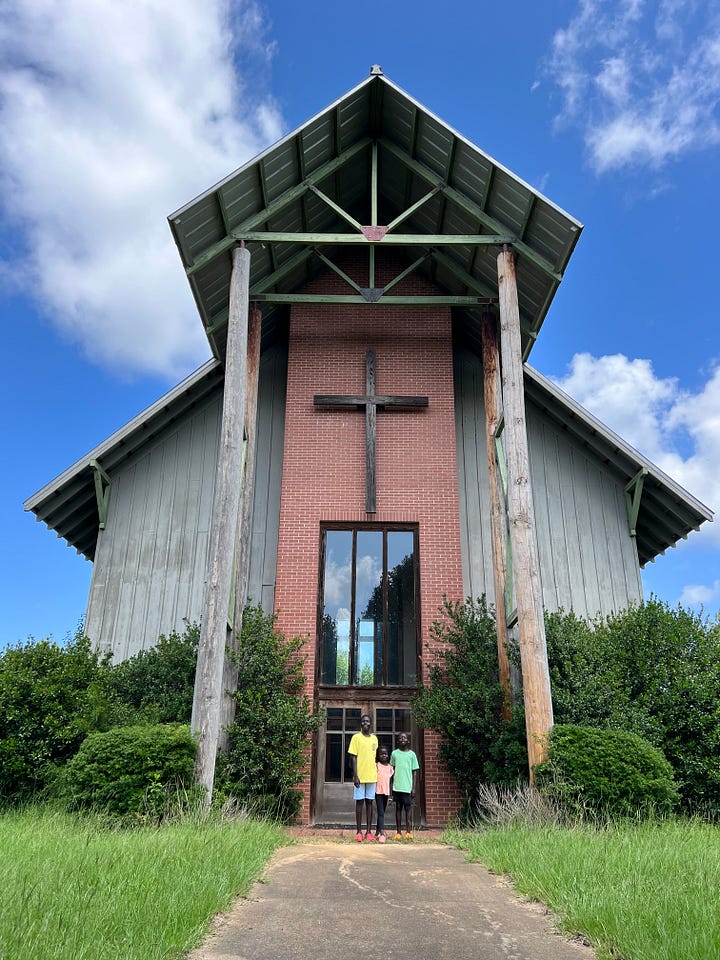
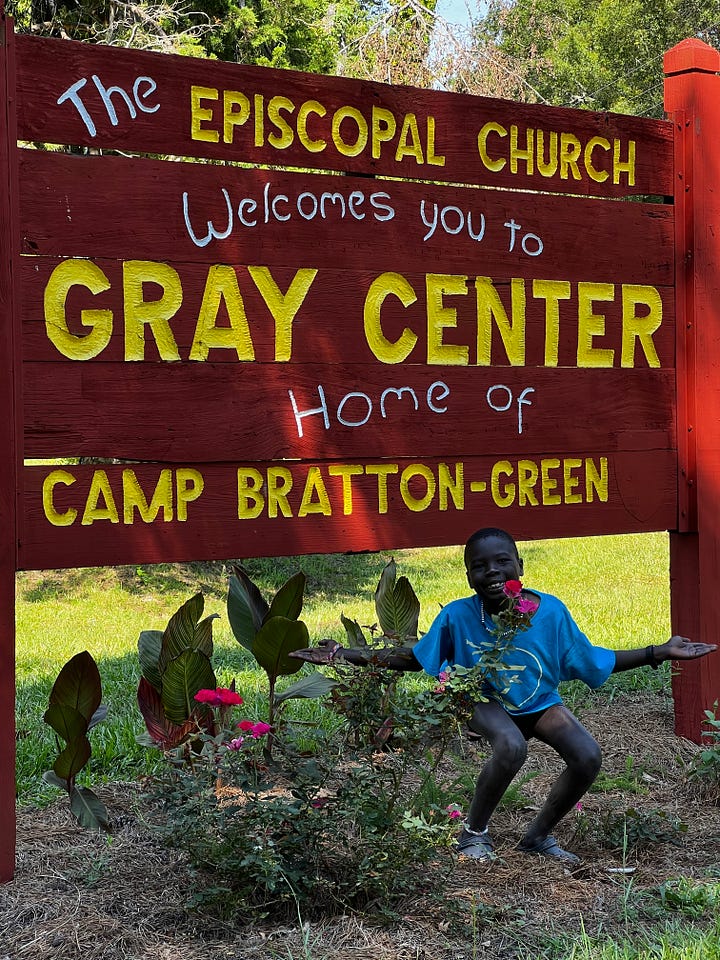
What do you miss most about Mississippi?
What I miss most about Mississippi is the village that surrounded me—the people who supported and shaped me, the delicious food, and that warm Southern hospitality. I would not be who I am today without everyone who played a role in my American journey.
How have you cultivated community in Maryland? Do you still feel rooted to Mississippi?
Since leaving Mississippi at twenty-one, I’ve moved quite a bit, and I’m still finding my footing here in Maryland. While I’m working on building community in this new place, my roots remain deeply tied to Mississippi. It was my first true home, and the relationships I built there—with friends who became family—still mean so much to me, and now to my children as well.
To me, “home” is a place where you feel a sense of belonging, comfort, and growth. It’s where your story starts to unfold. Mississippi is home for me because it’s where I first felt safe and rooted after coming to the U.S.
What’s the weirdest question or assumption you’ve encountered about Mississippi (or about you as a Mississippian) by someone who’s never been there?
I often get asked, ‘Where are you from?’ and when I say I’m from South Sudan but grew up in Jackson, Mississippi, people’s faces usually change. They’ll say things like, ‘Wow… how was that?’ or even, ‘Poor you.’ That’s when I find myself explaining just how amazing it actually was growing up in Mississippi. I always tell them it’s like any other state—sure, there are places you might not want to drive through at night, but Jackson was a great place for me. It shaped me in the best ways.
How has being from Mississippi affected your identity and your life’s path?
When I arrived in the U.S. from Kenya, I was placed into the care of the state of Mississippi and entered the foster care system. During my time there, I lived in six different homes across three counties, Hinds, Madison, and Rankin. Each home taught me something valuable, and through those experiences, I saw Mississippi from many different perspectives—the good and the difficult. Every placement shaped me in its own way and gave me a deeper understanding of the state that became my first home in America.
Mississippi still carries the weight of a history that continues to impact many of my Black American and African American brothers and sisters. But to truly understand the state, you must visit, or, better yet, meet a Mississippian.
What is something that you’ve come to understand about Mississippi by living elsewhere?
One thing I’ve come to understand about Mississippi after living elsewhere is that it’s a lot like the rest of the country, every state has a county like Madison and one like Hinds. But what truly sets Mississippi apart is the kindness of its people. Mississippi still carries the weight of a history that continues to impact many of my Black American and African American brothers and sisters. But to truly understand the state, you must visit, or, better yet, meet a Mississippian.
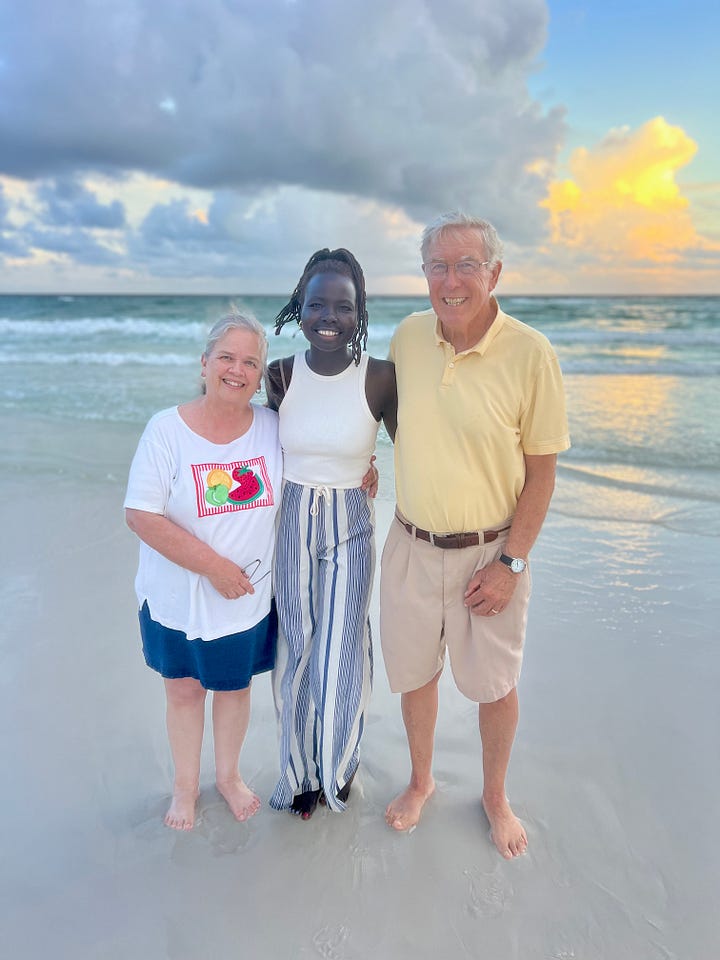
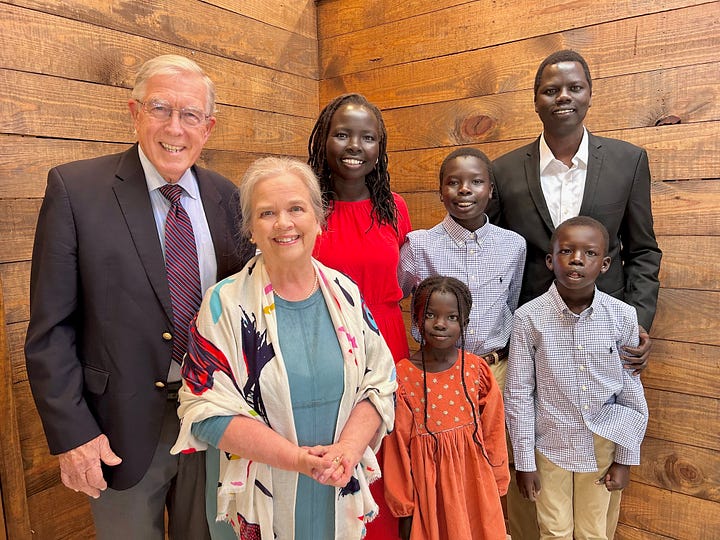
Have you ever thought about moving back? What would need to happen in order for you to move back to Mississippi?
I used to think about moving back but that wish faded last year. My cousin went missing, and later, he was found dead in the Pearl River. Deep down, I know he didn’t put himself there, yet very little was done to truly investigate what happened. Dau and I were among the youngest of the Lost Boys and Lost girls of South Sudanese placed in Mississippi. The night before we left the refugee camp for America, our village prayed over the two of us. Many of the Sudanese who were settled in Jackson have moved away, but Dau and I called Mississippi home—it’s where we lived the longest. If I were ever to consider moving back, I would need to see the Jackson police departments working together and taking every case seriously—especially when it involves the loss of life. We are still waiting and we’re still demanding justice for my cousin, Dau Mabil.
Mississippi shaped my understanding of both Black/African American and White American cultures, even as I continue growing in my own Dinka identity.
What do you wish the rest of the country understood about Mississippi?
Mississippi is a beautiful state, and in many ways, it’s no different from the rest of the country. It’s where I learned some of my most important life lessons. Mississippi shaped my understanding of both Black/African American and White American cultures, even as I continue growing in my own Dinka identity.
Is there a Mississippi change-maker who you think everyone needs to know about?
I have had the privilege of being surrounded by so many change-makers in Mississippi, whether through community service, church, or the arts. To me, anyone in Mississippi who wakes up each day and puts in the work—whether creating something meaningful or standing up for “equality and fairness” is making a difference. I’ll always be rooting for Mississippians!
If you had one billion dollars to invest in Mississippi, how would you spend your money?
If I had a billion dollars to invest in Mississippi, I’d start with Jackson, the way I remember it in the early 2000s. I’d put money into fixing roads, improving schools, and supporting local programs to help bring back the strong, vibrant community it used to be. Next, I would invest in Camp Bratton-Green in Canton—a place that became my home away from home. As a child in foster care, summers there gave me something I didn’t always have: a sense of peace, love, and belonging. It was my escape, my safe place, where I could just be a kid and feel like I mattered.
Tabitha Agany is a former refugee, a Lost Girl, and a former foster child who’s now a wife, a mother of three, and proud of it all. She works as a special education paraeducator and also pursues her passion as a photographer.
One year ago:
Mississippi Native: Katie Rogers
"Being a Mississippian is a massive piece of my identity. I wear it as a badge of honor."
Two years ago:
Mississippi Transplant: Nora Katz
"One of my greatest points of pride in my life is that I have always been able to make a home everywhere I go. Home is where we plant ourselves, for now or for forever."




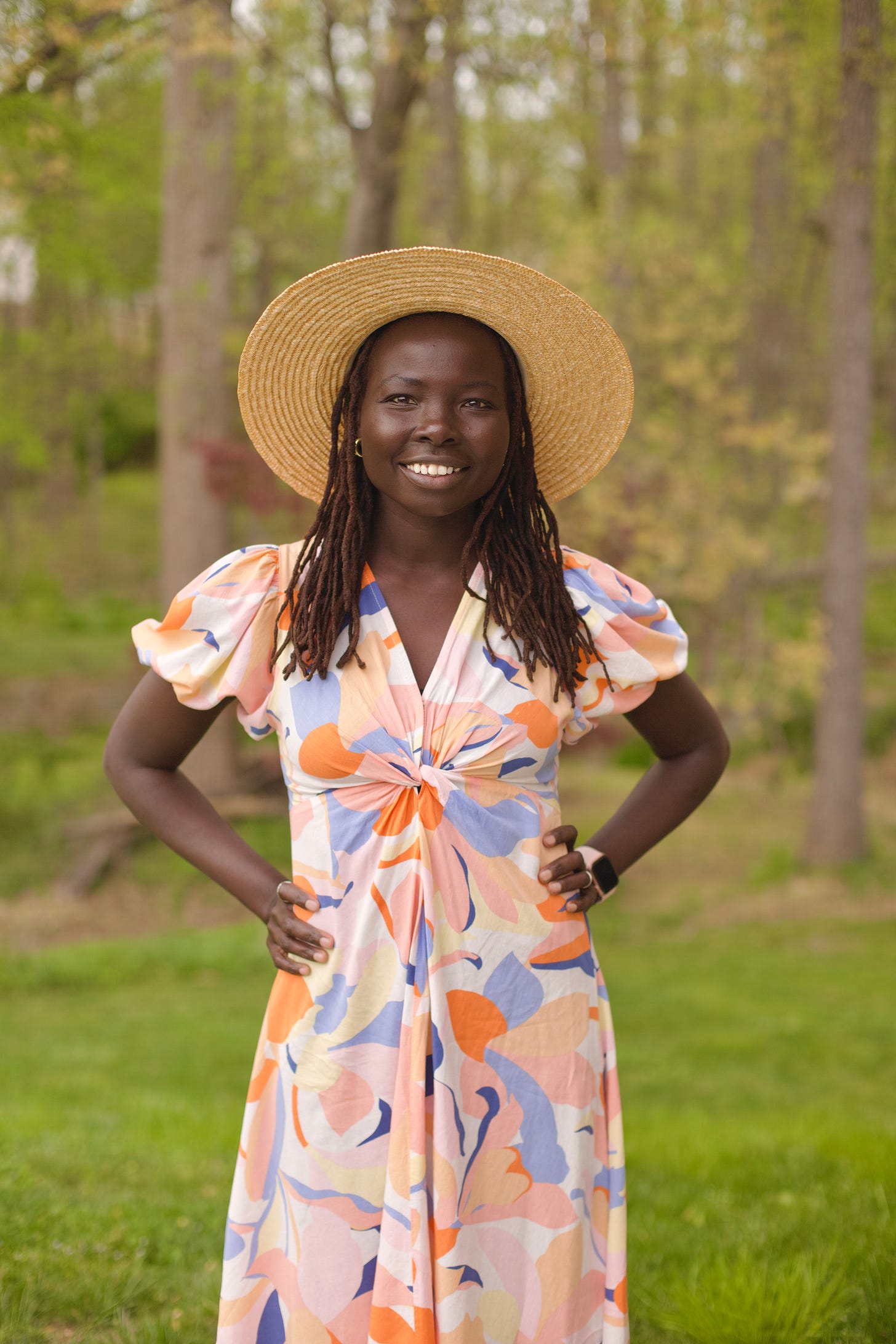
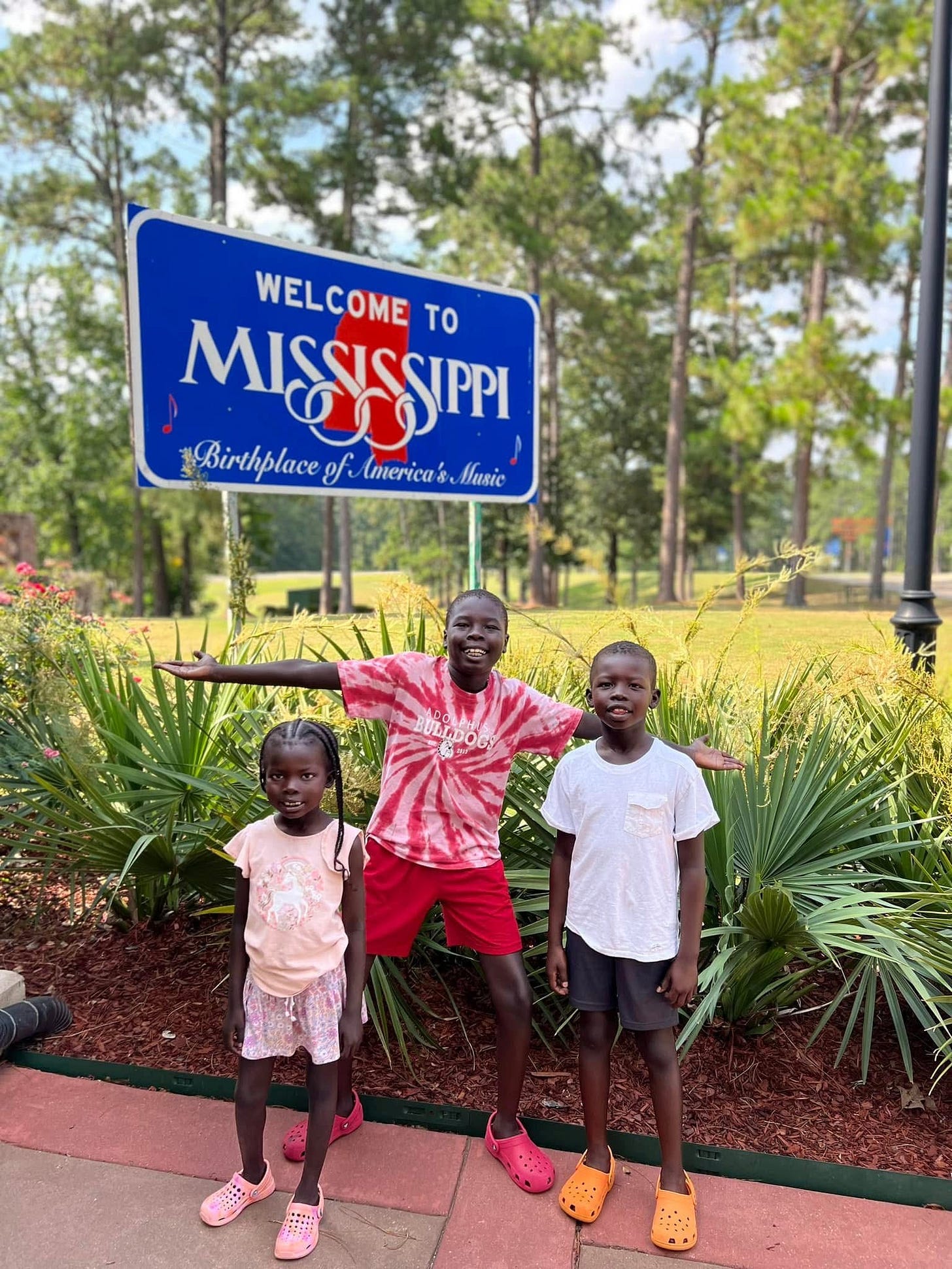
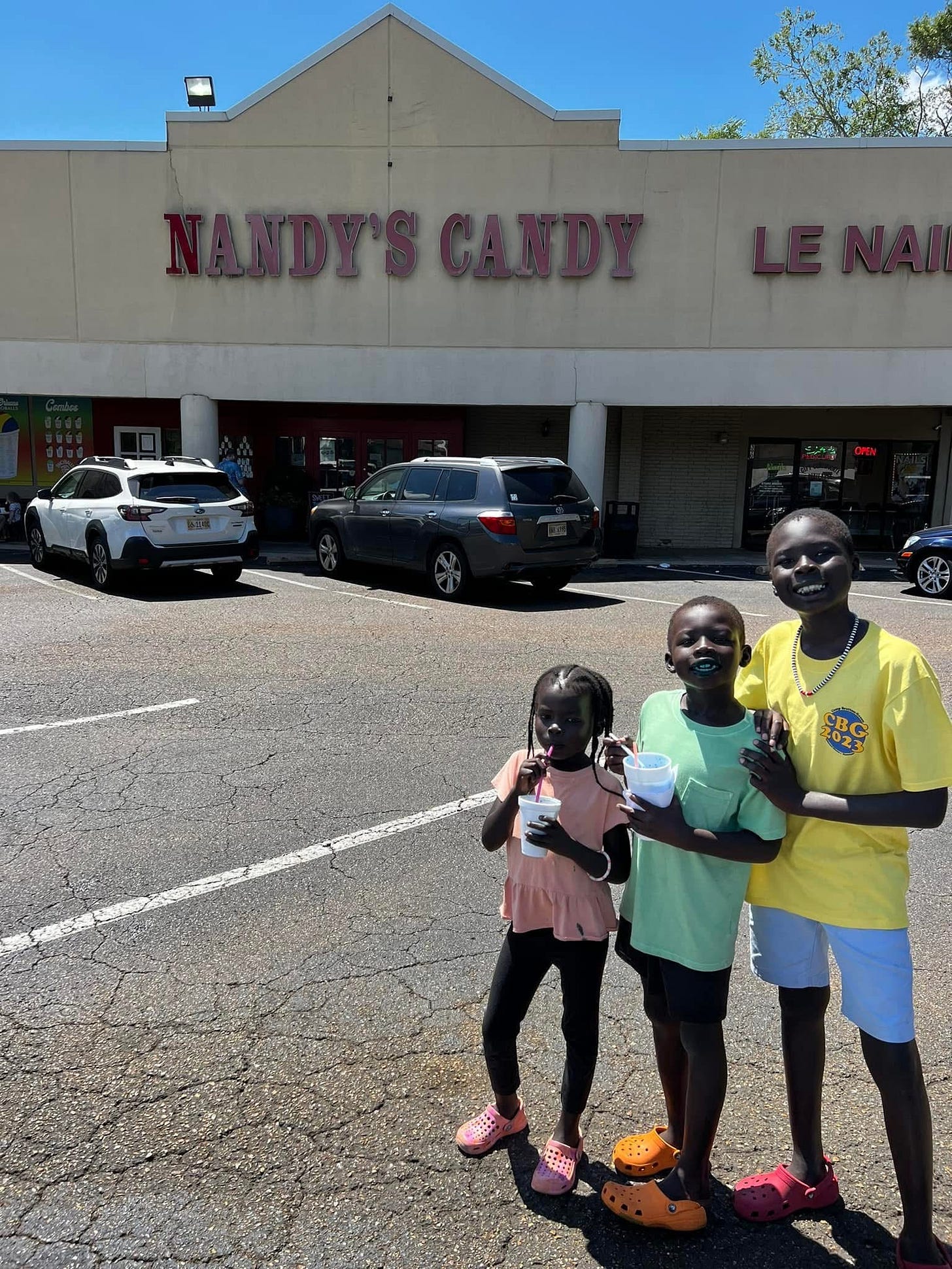
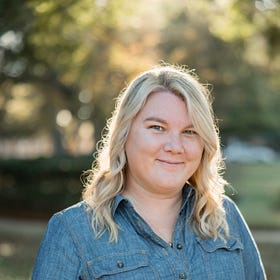
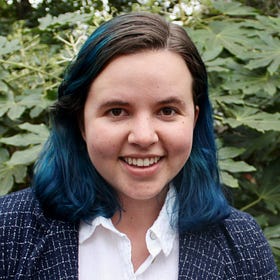
I'm beginning to think a billion dollars should be entirely used demolishing the current construct of policing in MS and rebuilding with new people and new bricks & mortar.
Thank you for this interview. I wonder is Tabitha was at the Kakuma Refugee Camp in Kenya. I visited there years ago - an experience I'll never forget. Would love to talk with her.